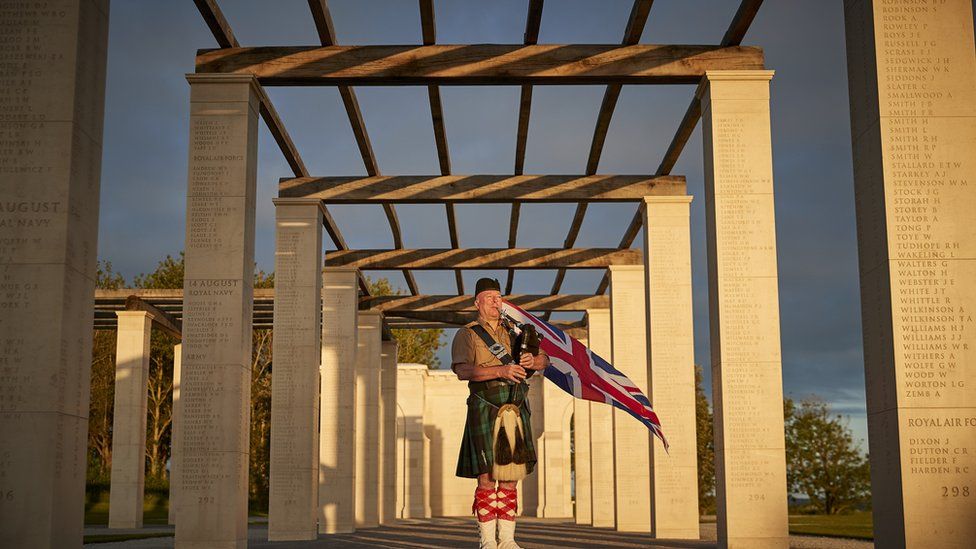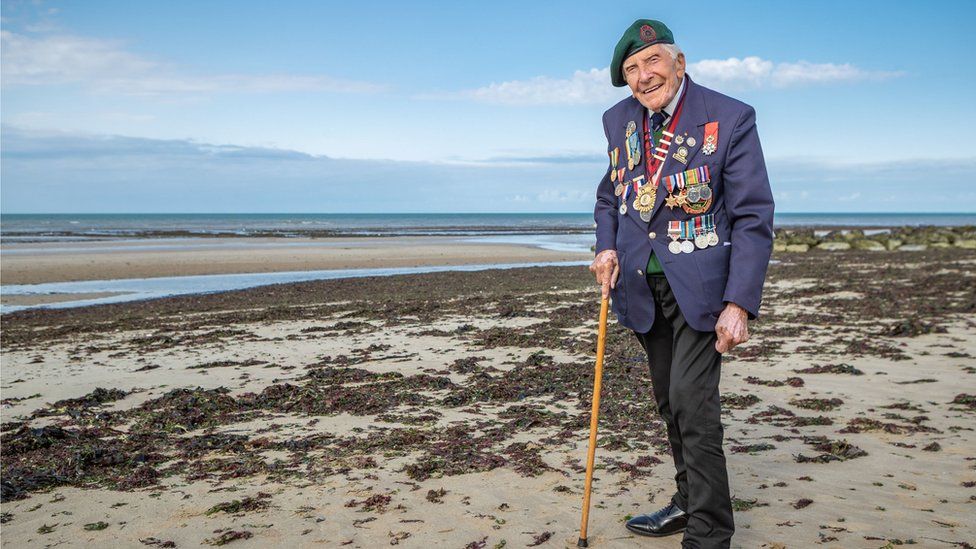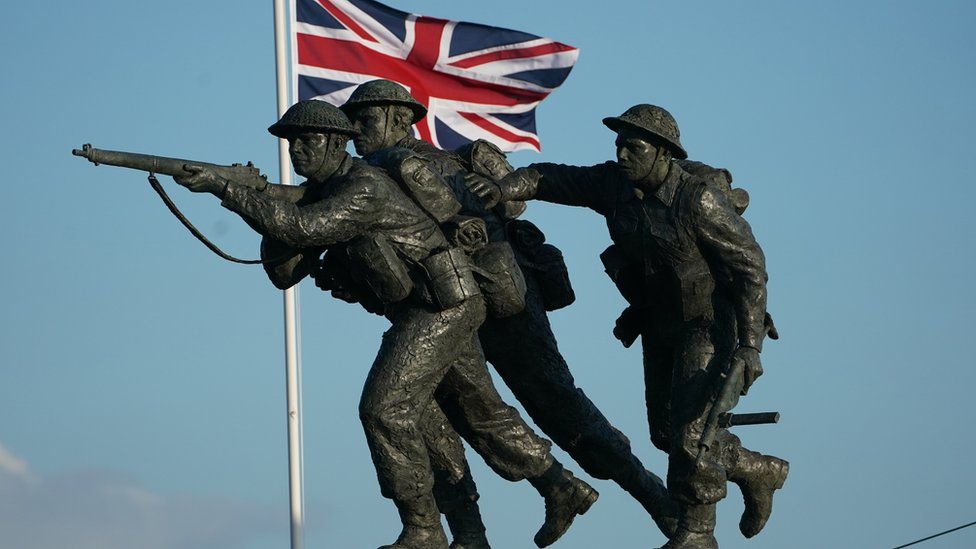British Normandy Memorial unveiled in France to honour veterans

A memorial honouring soldiers who died under British command on D-Day - and in the fighting that followed - has been unveiled in France on the 77th anniversary of the Normandy landings.
The British Normandy Memorial records the names of the 22,442 people who were killed on D-Day and at the Battle of Normandy.
It cost £30m and was designed by British architect Liam O'Connor.
Due to Covid restrictions, veterans watched the unveiling via video link.
Only a small number of people were able to attend the event in the Normandy town of Ver-sur-Mer, where the memorial is situated.
Lord Edward Llewellyn, the British Ambassador to France, presided over the ceremony and was joined by Lord Peter Ricketts, chairman of Trustees at the Normandy Memorial Trust, and senior French guests.
The event also included coverage of the Royal British Legion's service of remembrance at the Bayeux Commonwealth War Graves Cemetery, and provided an opportunity for Normandy veterans to have their Legion d'Honneur formally presented to them by the French ambassador to the UK.
Around 100 veterans unable to travel to Normandy watched a live broadcast from the National Memorial Arboretum in Staffordshire.
In a video message the Prince of Wales, patron of the Normandy Memorial Trust, said it was important the memory of these "remarkable individuals should be preserved for future generations as an example of personal courage and sacrifice, for the benefit of the wider national and, indeed, international community".
"I know just how much our incomparable veterans had hoped to be in Normandy today to see their Memorial for themselves" he said.
"Despite having to watch via satellite link, this in no way obscures the enormous regard, and admiration, in which we hold our veterans - or diminishes our debt of gratitude to the more than 22,000 men and women whose names are now permanently inscribed in stone in this place of honour above Gold Beach."
The memorial is the culmination of years of campaigning by D-Day veterans.
Its £30m cost was funded by the UK government, private donations and fundraising efforts by D-Day veterans like 94-year-old Harry Billinge, who was appointed MBE for raising more than £25,000 towards it.

The 94-year-old from St Austell, Cornwall, said he was "overwhelmed" by the memorial and "had tears in my eyes".
"When I collect money for that memorial, I get a great calmness over me," he told the BBC.
"I lost a lot of good men, young men."
The memorial sits atop a hillside overlooking Gold Beach, one of three where soldiers from Britain, the US, Canada and France landed on the morning of 6 June 1944 to begin the liberation of Western Europe from the Nazis during the Second World War.
The site consists of a temple-like structure containing 160 stone columns inscribed with the names of the dead, a bronze sculpture of three charging infantrymen by British sculptor David Williams-Ellis, and a wall featuring the names of those who were killed on D-Day itself.

There is also a memorial dedicated to the memory of French civilians who died during the period.
The British Normandy Memorial had originally been due to open last September but it was postponed due to the pandemic.
Paul Harris, whose grandfather Private George Hanks died aged 30 on 7 August 1944 during Operation Bluecoat, said his grandfather "gave up everything" to liberate Normandy and the rest of Europe.
Mr Harris told BBC Breakfast: "He went off to fight, he left my grandmother a widow with a young baby... He gave us what we have now and that memory has to be preserved."
Lord Richard Dannatt, the former head of the British army, said the memorial would stand as an "an everlasting memorial to the greatest amphibious operation ever to have taken place in history".
"It was so important that it played a significant role in ending the Second World War and bringing peace and freedom to Europe," he told BBC Breakfast.
He added that the memorial was the "right and proper thing to have done" to honour fallen servicemen and women, but that it "perhaps should have been done 30 or 40 years ago".

June 06, 2021 at 10:17PM
By Mary O'Connor
https://www.bbc.co.uk/news/uk-57373932
Labels: BBC News

0 Comments:
Post a Comment
Subscribe to Post Comments [Atom]
<< Home